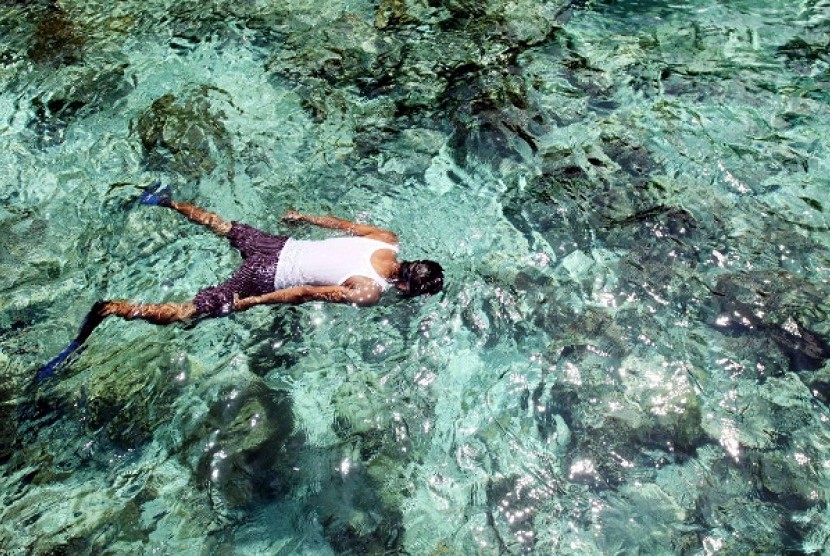REPUBLIKA.CO.ID, JAKARTA -- Indonesia expects to generate Rp172 trillion in foreign exchange income from tourism in 2016 as the nation is targeting to attract at least 12 million foreign tourists.
The country's tourism potentials could still be optimized in the coming years, Tourism Minister Arief Yahya stated here on Wednesday.
"In view of this, we have set optimistic targets of attracting 12 million foreign tourists in 2016 and generating an income of Rp172 trillion from the sector," he noted.
The minister explained that the number of domestic tourist travels in 2016 is expected at 260 million, with expenditures projected at Rp223.6 trillion.
He remarked that the contribution of the tourism sector to the country's gross domestic product is projected to increase by five percent to create 11.7 million jobs.
To support the realization of the targets, the minister's office, in cooperation with stakeholders, has prepared action plans including continuing the current marketing and promotion strategy, with emphasis on positioning and strengthening the "Wonderful Indonesia" brand in the main market countries, Yahya pointed out.
"This is done in the framework of regaining the attention of prospective tourists to include Indonesia in their wish list of countries they would like to visit," he affirmed.
In connection with this, he said a massive marketing communication campaign would be conducted across the world through international media channels including print, electronic, and online media or outdoor media such as in buses, taxis, mass rapid transit networks, bus stations, railway stations, and shopping centers depicting images of tourist destinations in Indonesia.
He stated that offline promotion activities would also be conducted through international tourism exhibitions, sales missions, and familiarization trips.
Yahya said he would intensify activities to strengthen the Wonderful Indonesia brand as well as to promote advertising and selling activities involving tourism business players through international tourism exhibitions abroad.
In 2016, Indonesia plans to participate in exhibitions such as the ITB Berlin, WTM London, WTM Dubai, CTM China, NATAS Singapore, MATTA Malaysia, JATA Japan, Korea, Australia, or international tourism exhibitions with special purposes such as the DEMA show, Cruise Shipping, Boot Dusseldorf, GOLF, and MICE.
To introduce tourist destinations and the latest tourism packages in Indonesia, the Ministry of Tourism will also carry out the sales mission in big cities of several countries that are the main sources of tourists.
He referred to cities such as Singapore, Kuala Lumpur, Johor, Malaka, Kota Kinabalu, Bangkok, Phuket, HCMC, and Manila in the Southeast Asian region; Shanghai, Chengdu, Seoul, Busan, Beijing, Hong Kong, Macau, Guang Zhou, Tokyo, Osaka, Sydney, Melbourne, Adelaide, Brisbane, Perth, Mumbai, and New Delhi in the Asia-Pacific region; and Amsterdam, Paris, and Frankfurt in Europe; Dubai and Jeddah in the Middle East; Johannesburg in Africa; and Moscow.
The minister said the sales mission would be carried out to boost the sales of tourism packages and self-confidence among national tourists and industrialists as the presence of the government along with business players would lend greater confidence to foreign buyers.
Other strategic activities to be carried out include familiarization trips to introduce and promote tourist attractions to foreign stakeholders by inviting them to visit the locations under the framework of implementing the concept of "seeing is believing."
"They include tour operators, print/electronic media persons, social media and blogger activists, and people who could influence the decision-making process with regard to tourism events," he added.


